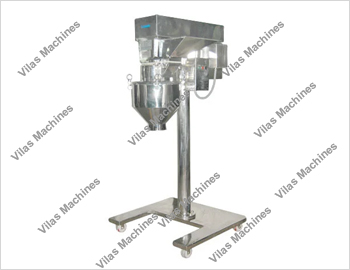A Multi Mill is a versatile pharmaceutical machinery used in the pharmaceutical, chemical, food, and cosmetic industries for size reduction, granulation, and mixing of powders. The term "GMP model" indicates that the machine is designed and manufactured in compliance with Good Manufacturing Practices (GMP), which are guidelines and standards ensuring the quality and safety of pharmaceutical and related products.
The content of a Multi Mill GMP model machine typically includes the following components:
- • Main Body: The main structure of the machine, usually made of stainless steel, which is a common material in pharmaceutical equipment due to its corrosion resistance and ease of cleaning.
- • Motor: An electric motor to provide power for the milling and granulation processes. Motors used in pharmaceutical machinery are often designed to meet specific industry standards.
- • Rotor Assembly: The rotor is a key component responsible for the size reduction of particles. It typically consists of blades or knives that rotate at high speeds to cut and grind the materials.
- • Screen/Perforated Sieve: A screen or perforated sieve is used to control the particle size of the milled material. Different screens with varying perforation sizes can be used depending on the desired granule size.
- • Hopper: A container for loading the raw material into the machine. The design of the hopper is important for efficient feeding and prevention of contamination.
- • Controls and Instrumentation: A control panel with user-friendly interfaces to adjust and monitor the machine's operation. This may include controls for speed, feed rate, and other relevant parameters.
- • Safety Features: GMP-compliant machines often include safety features such as interlocks, emergency stop buttons, and protective covers to ensure operator safety and prevent accidents.
- • Documentation: GMP machines come with documentation that includes user manuals, validation documents, and other relevant information to comply with regulatory requirements.
- • Compliance Certifications: The machine may come with certifications indicating compliance with relevant industry standards and regulations, such as GMP guidelines.
It's important to note that specific features and components may vary among different models and manufacturers. Users should refer to the machine's documentation and guidelines provided by the manufacturer for detailed information on operation, maintenance, and compliance.

